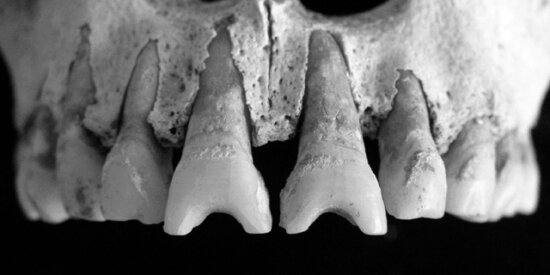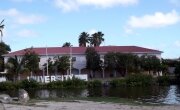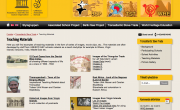Oct 2012: PhD Fellows conduct archaeological research on St. Helena

EUROTAST PhD Fellows Judy Watson and Erna from the University of Bristol spent the month of October on the Island of St. Helena documenting and collecting samples from the recently excavated remains of 325 enslaved African individuals. These remains originally surfaced in Ruperts Valley in 2008, following plans to build an airport runway. An archaeological team lead by Dr. Andrew Pearson from the University of Bristol, excavated the site containing mass burials of African people, many of whom were children under the age of 18. Best known as the island where Napoleon died in exile in 1821, St. Helena was also used as a literal dumping ground for liberated Africans who were released from slaving ships following emancipation between 1840 and 1872. Disease and neglect killed people quickly, and they were poorly buried in collective graves.
Little is known about the ancestral origins of these excavated individuals, although it is believed they are first generation Africans. Erna and Judy will use the samples collected to conduct research on health, nutrition, and patterns of trauma, as well as to better understand the cultural practice of dental modification. The samples will also be used to solve the riddle of geographic origins, through analysis of remaining DNA and isotope analysis (based on elemental deposits in teeth).
A local newspaper interview “Giving a Voice to the Voiceless” written by reporter Sharon Henry, discussing the fellows’ research and experiences in St. Helena, can be downloaded from The Sentinel Newspaper online (pp. 28-29).
Click here for an interesting audio podcast interviewing Dr. Andrew Pearson and his research team



